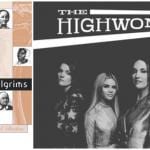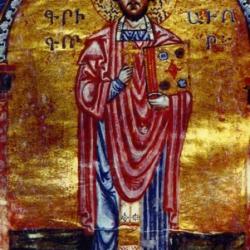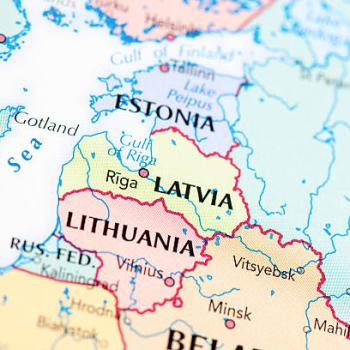On November 22, 1967, in Decree 4377, the Albanian dictator Enver Hoxha declared religion officially dead. The measure coincided with a sweeping attack on religious institutions in the small Balkan state. Priests, bishops, imams were imprisoned or killed. Churches and mosques were vandalized, looted, and turned into dance halls, basketball courts, theatres, and the like. As one father remembered the time: “Parents were afraid to teach their children explicit words such as ‘love God and neighbor’ because a child might unwittingly use them in school,” triggering the government’s retaliation.
Sadly, Albania was not an isolated case. The twentieth century should be remember as the age par excellence of mass death and persecution by militantly secularist regimes. An estimated 31 million lost their lives during Mao Zedong’s Great Leap Forward and Cultural Revolution. Tibet’s religious heritage was plundered by the same regime. Millions more died in the Soviet Union, especially during Stalin’s brutal crack-down of churches in the 1930s. And this is to say nothing of forced secularization in Turkey under Kemal Atatürk in the 1920s and comparable measures in other Eastern European states, North Korea, and Cuba during the postwar period.
Given secularism’s bloody track-record, it is odd that the highly-decorated historian Margaret C. Jacob associates it with nothing by tolerance, emancipation, and progress in her recent book, The Secular Enlightenment. Oscillating between focusing on ordinary people and elites, Jacob concentrates on why and how secular discourses emerged in major Enlightenment centers during the eighteenth century. Here is the cover’s description:
The Secular Enlightenment is a panoramic account of the radical ways that life began to change for ordinary people in the age of Locke, Voltaire, and Rousseau. In this landmark book, familiar Enlightenment figures share places with voices that have remained largely unheard until now, from freethinkers and freemasons to French materialists, anticlerical Catholics, pantheists, pornographers, readers, and travelers.
Margaret Jacob, one of our most esteemed historians of the Enlightenment, reveals how this newly secular outlook was not a wholesale rejection of Christianity but rather a new mental space in which to encounter the world on its own terms. She takes readers from London and Amsterdam to Berlin, Vienna, Turin, and Naples, drawing on rare archival materials to show how ideas central to the emergence of secular democracy touched all facets of daily life. Human frailties once attributed to sin were now viewed through the lens of the newly conceived social sciences. People entered churches not to pray but to admire the architecture, and spent their Sunday mornings reading a newspaper or even a risqué book. The secular-minded pursued their own temporal and commercial well-being without concern for the life hereafter, regarding their successes as the rewards for their actions, their failures as the result of blind economic forces.
A majestic work of intellectual and cultural history, The Secular Enlightenment demonstrates how secular values and pursuits took hold of eighteenth-century Europe, spilled into the American colonies, and left their lasting imprint on the Western world for generations to come.
Jacob claims not to be writing “teleological” history, that is, history that assumes and even champions certain outcomes. But the overall tone of the book betrays her unqualified boosterism for the secular—its “new cosmopolitan space,” its “progressive liberation,” its happy coincidence with the right side of history. “The secular with which we still live ha[s] become all pervasive,” she pronounces, “even if offensive to the religiously observant.” The implication is that these benighted souls need to rid themselves of the “opiate of the masses” and join the forces of light.
In a chapter on “Paris and the Materialist Alternative,” Jacob claims that “[m]aterialism offered liberation from the strictures that religion imposed on human nature.” This in turn allowed for “love of pleasure” and indulgence in sexual experimentation. Throughout the book, she rarely misses an opportunity to associate the new secularism with the frisson of previously verboten fleshly delights.
To be sure, the legacy of Enlightenment secularism is diverse and complicated with numerous trajectories of influence. If one means by secularism simply freedom of conscience, religious freedom, toleration, and the like, then one should certainly celebrate its emergence in the eighteenth century. But Jacob’s book fails completely in discussing secularism’s negative aspects as suggested above. An accomplished historian, she should have known better.













